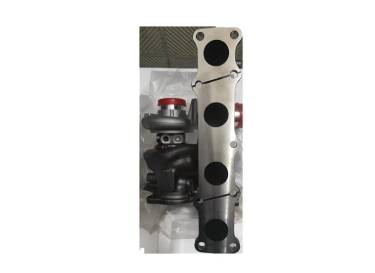Mar. 30, 2020
Carbon deposits are deposits produced by the incomplete combustion of fuel and lubricating gas mixtures. The formation of deposits is directly related to the "fuel" and "lubricating oil" of automobiles: firstly, the carbon particles contained in the blow-by gas of "lubricating oil" are deposited in a larger amount when incomplete combustion. The car itself contains colloids, impurities, or dust and impurities brought in during storage and transportation. Over time, oil-like sludge deposits are formed on the car's fuel tank, oil inlet pipe, etc .; secondly, unstable groups such as olefins in gasoline, etc. At a certain temperature, oxidation and polymerization reactions occur, forming a gelatinous and resinous viscous substance. These stickies deposit on nozzles, intake valves, combustion chambers, etc. and become hard carbon deposits. In addition, due to urban traffic congestion, cars are often at low speeds and idle speeds, which will aggravate the formation and accumulation of these deposits.
What impact will carbon deposits have on cars? Mercedes Benz generator supplier to share with you:
1. reduce engine power
2. Increase fuel consumption
3. Cold start difficult
4. Serious carbon deposits in the combustion chamber will also knock! There is a sound at low-speed acceleration, causing damage to the piston and crankshaft
5.Excessive emissions
Solution:
First: Fill up with high-quality gasoline
Impurities such as wax and gum in gasoline are the main components for forming carbon deposits, so the tendency of gasoline with high cleanliness to form carbon deposits is weaker. Unfortunately, at present, the quality of gasoline in our country is still lower than that of developed countries. In order to ensure the cleanliness of gasoline, some car owners will use the method of adding gasoline cleaner to gasoline. This can effectively prevent the formation of carbon deposits on the metal surface, and can gradually activate the original carbon deposits to be slowly removed, thereby protecting the engine from injury. However, the addition of gasoline cleaner must be cautious. If counterfeit products are added, the opposite effect will be obtained.
Second: Do not idle for long periods of time
When the idle time is long, the time it takes for the engine to reach normal temperature becomes longer. After the gasoline is sprayed to the back of the valve, the evaporation speed is slow, and the carbon deposits are generated. At the same time, often idle driving, the airflow into the engine is also small, so the scouring effect on the carbon deposits becomes weak, which will promote the deposition of carbon deposits.
Third: Run more high speeds, try to increase the speed of gear shifting
The purpose of multi-run high speed is to use the scouring effect of the airflow on the air intake to prevent carbon deposition. In addition, increasing the speed of the shift also has the same effect as the multi-speed high-speed. Changing the original shift to 2500 at the speed of 2000 can not only effectively prevent the formation of carbon deposits, but also improve the power of the car and avoid changing gears. The knock caused by low gear speed protects the engine.

Turbo Chargers For Cars
Fourth: Pay attention to the timing of car extinction
For cars equipped with turbo chargers for cars, do not stop the car immediately after driving at a high speed or climbing a hill, and then run the car after idling for 10 minutes. The formation of carbon deposits is several times faster than that of general naturally aspirated cars.
Due to the influence of the city's road conditions, people's pace of life, and China's fuel market conditions, the above methods to avoid carbon deposition may not be easy to achieve. Then it is recommended that some car families do the disassembly-free cleaning of the air intake system every 20,000 to 40,000 kilometres under the conditions that the conventional maintenance is satisfied, that is, the air intake of the vehicle with special equipment and special methods without dismantling the engine Road, valve, oil passage, and other places where carbon deposits are likely to be formed for carbon removal operations. This can effectively reduce the impact of carbon deposition on engine performance and keep the "heart" of the car in an optimal state.
Navigation
Name: Carrie Zhou
Tel: +023-68886580
WeChat: 0086-13650592877
E-mail: carrie@autopartstf-ws.com
Skype: transfortune
WhatsApp: +86 136 5059 2877
Homepage: www.autopartstf-ws.com